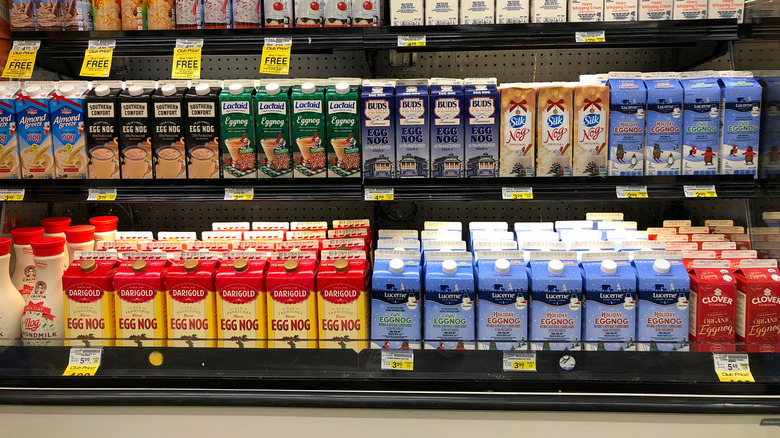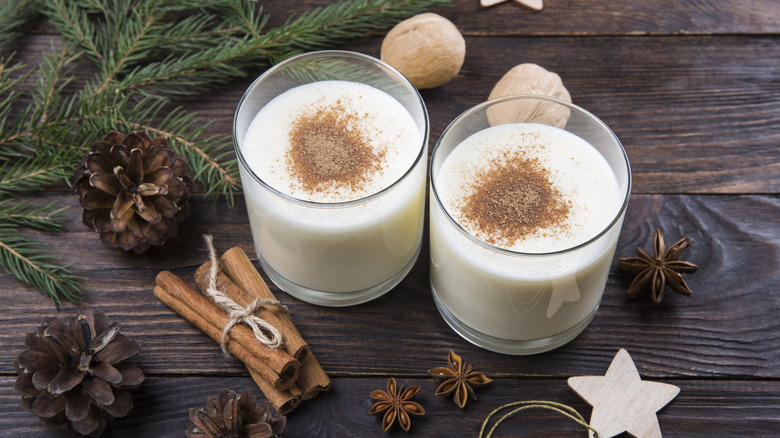You Need To Watch Out For This Red Flag When Buying Eggnog
There are few drinks as polarizing as eggnog and fewer that are as closely associated with Christmas. Adored by some and abhorred by others (perhaps the reason why it's referred to as hell's angel), it is a cocktail that is omnipresent during the holiday season. Even George Washington had a favorite Christmas eggnog recipe for his guests. So, regardless of which side of the spectrum you fall on, it's wise to ensure you have your supply of the thick, luscious eggnog for your dinner party. The best part about this festive drink is that it's readily available, and you can always transform store-bought eggnog into something even more delicious. However, you should keep a brief checklist in mind while purchasing pre-made eggnog.
The Daily Meal consulted Gary Mennie, Food and Beverage Director at The Mills House, to identify the biggest red flag to avoid. His advice: "ingredients that you can't pronounce." While store-bought drinks like eggnog inevitably contain preservatives and thus some complex chemical names, don't dismiss them outright. Instead, educate yourself on what good eggnog should include. In an exclusive interview, Mennie provided valuable tips on the types of ingredients to prioritize in store-bought eggnog, and he also recommended trusted brands to consider when shopping for it.
What to keep in mind while checking the eggnog's ingredient list
"Stay away from any ultra-processed ingredients," warns Mennie. These additives can not only be high in sugar and sodium, but they also pose potential health risks. Some common examples found in eggnog include modified starch, carotene, gellan gum, and sodium carboxymethyl cellulose. However, not everyone has the time to analyze a lengthy ingredient list. If you need to beat the clock while ticking things off your Christmas shopping list, look for organic brands. "That is always a good start," Mennie points out. Organic brands typically use ingredients that do not contain synthetic hormones, toxic pesticides, or GMOs. They are also more transparent about what goes into their products.
Another approach could be to check for eggnog produced by liquor brands. "Some of the popular liquor brands have their own eggnog out on the market," Mennie says, naming Southern Comfort, Evan Williams, and Benchmark as a few examples. A few other brands produce good eggnog varieties to satisfy every craving. Once you've made your purchase, check the eggnog after opening and try to consume it within five to six days. Milk and eggs aren't a combination that should be preserved for long, though you can age homemade eggnog. A few ways to investigate if your eggnog is intact are to see if it smells like spoiled milk, has a lumpy texture, or has lost its yellowish-beige color. These steps will help you gauge if your creamy, frothy drink is ready for a boozy twist and get you ready for a nog-out Christmas!

